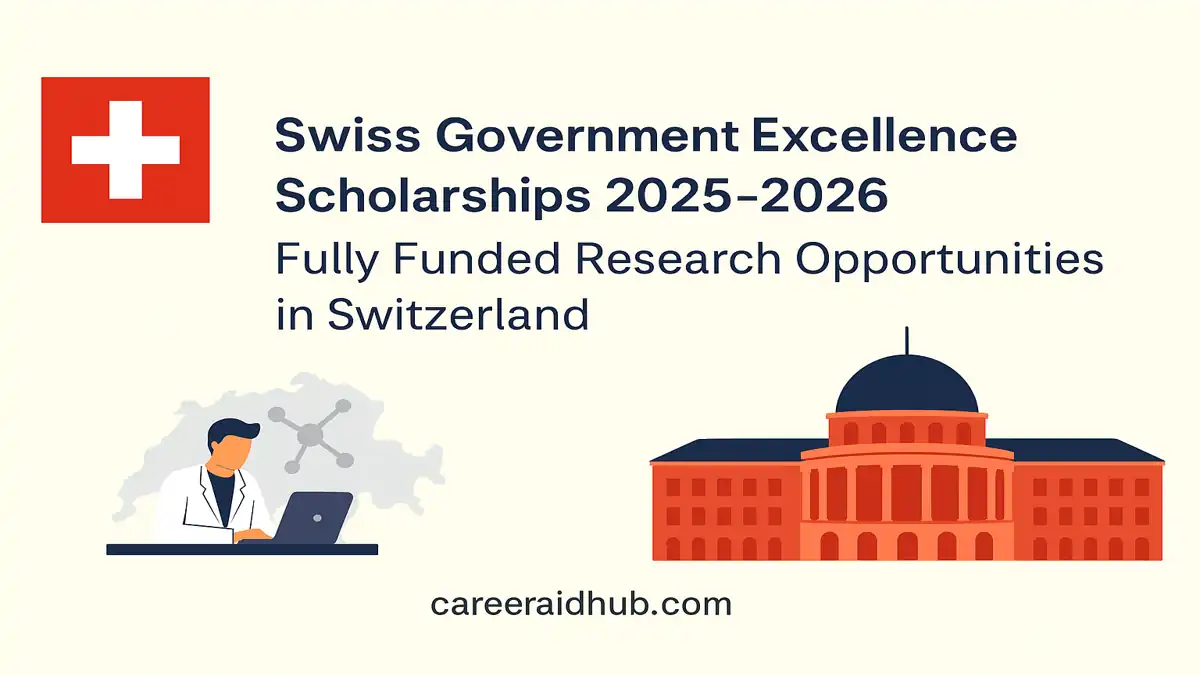Accelerate Your Research Career with HORIZON-MSCA Joint PhD Positions at KU Leuven
Begin a transformative doctoral journey through the HORIZON-MSCA Joint PhD positions embedded in the HAP³ Project (Grant Agreement No. 101169127) and hosted by KU Leuven (Belgium). Designed for First Stage Researchers (R1), these full-time, fixed-term posts offer structured training, high-level supervision, and international collaboration across a multi-university network. Critically, the consortium focuses on obesity and mental health during key reproductive periods—an area with profound clinical and policy impact.
Launch your PhD on a world-class platform. The HORIZON-MSCA Joint PhD positions within the HAP³ consortium at KU Leuven combine rigorous supervision, international mobility, and funded researcher allowances—positioning early-career scholars to tackle obesity and mental health challenges during reproductive life stages while building a competitive research portfolio for academia or industry.
What You’ll Work On—In Brief
- Investigate risk, prediction, and intervention pathways around maternal/parental health and early childhood outcomes.
- Contribute to large multi-country datasets and validated models that inform health authorities and clinical practice.
- Engage with a five-university, eleven-vacancy network including non-academic partners for real-world relevance.
Key Highlights
Host & Department
Organisation: KU Leuven — Department of Development and Regeneration (Belgium). The environment combines clinical proximity with strong data science capacity, enabling translational work from cohort analysis to policy-ready insights.
Funding Framework
Programme: Horizon Europe — Marie
Timelines (Current Cycle)
-
- Start Date: 1 September 2025
- Application Deadline: 31 October 2025 (23:59, Europe/Brussels)
- Contract Type: Full-time, temporary, with an initial one-year appointment extendable by 2.5 years upon satisfactory evaluation (total ≈ 3.5 years).
Next Cycle (Forecast): Based on this year’s window, expect applications to open in August 2026 and close in October 2026 — we will update soon.
Stipends & Allowances
Doctoral researchers receive a competitive package aligned with MSCA-JD regulations: living allowance, mobility allowance, and, where applicable, a family allowance. Final take-home depends on local taxation, social charges, and country correction factors.
What Makes This Opportunity Stand Out?
1) Prestigious Institutional Backing: KU Leuven is a research-intensive university with a global footprint. The HAP³ collaboration brings together leading labs, clinical partners, and policy-relevant stakeholders—amplifying both scientific rigor and societal impact.
2) Structured MSCA Training (Joint Doctorate): You gain a personalized training plan, cohort-based learning, cross-sector exposure, and opportunities for secondments. This structure accelerates
3) Early-Career Focus (R1): The program is tailored for researchers immediately after a Master’s degree (or equivalent). It offers scaffolded supervision and a gradual increase in research independence, so your development stays on track.
4) International & Interdisciplinary Reach: HAP³ spans 5 universities and 11 associated partners (including 7 non-academic). You will collaborate across borders and disciplines, strengthening your CV with multi-site data access and intersectoral experience.
Application Timeline & Strategic Planning
Prepare Early (Now → Deadline)
-
- Audit your fit against project-specific requirements (e.g., epidemiology, public health, psychology, nursing, statistics, longitudinal data).
- Draft a precise motivation letter that maps your skills to the HAP³ aims (risk modeling, prediction, cohort analysis).
- Request two strong academic referees well ahead of time; brief them with your CV and research focus.
Submit a Complete, Compliant File
Applicants submit documents via the project’s central channel indicated on the official HAP³ site (ID/passport copy, degrees/transcripts, B2 English proof, CV, motivation letter, referees). Indicate which DC(s) you are applying for and rank preferences clearly.
Why MSCA Joint PhD Positions Are Career Accelerators
Network Effects that Matter: MSCA cohorts offer pan-European credibility. Alumni enjoy stronger research networks, higher mobility, and broader career options. You benefit from hands-on secondments with non-academic partners, which can catalyze translational work and
Training You Can Use Immediately: Beyond domain methods, expect training in open science, research integrity, data management, scientific writing, and policy communication—the exact skills hiring committees and employers prioritize.
A Competitive Profile at Graduation
Graduates exit with:
-
- Peer-reviewed outputs tied to large-scale datasets,
- International co-supervision records,
- Demonstrated mobility and intersectoral collaboration, and
- A documented portfolio of transferable skills.
How to Excel as an Applicant
1) Demonstrate Research Relevance: Explain how your background fits HAP³ (e.g., childhood obesity risk, maternal mental health, longitudinal cohorts). Cite techniques you know—R, SPSS, mixed models, survival analysis, causal inference—without jargon overload.
2) Clarify Objectives & Impact: In your statement, articulate clear aims, methods, and anticipated outcomes. Show how the work could shape national health guidance or early-intervention programs.
3) Engage the Network: Politely reach out to potential co-supervisors or current MSCA fellows for insight on lab culture and expectations. Prepare 2–3 thoughtful questions that reveal genuine engagement with the project theme.
4) Select Strong Referees: Choose referees who can discuss your methods fluency, research
5) Signal Mobility & Flexibility: Joint doctorates expect movement across nodes. Briefly note your readiness for secondments and how you will manage practicalities (language learning, schedules, and ethical approvals).
At-a-Glance Feature Table
|
Feature |
Details |
|
Program Name |
HORIZON-MSCA Joint PhD Positions — HAP³ (Healthy Adaptation to Pregnancy, Postpartum and Parenthood) |
|
Host Country |
Belgium (lead host: KU Leuven; multi-country consortium) |
|
Funded By |
Horizon Europe — Marie Skłodowska-Curie Actions (MSCA) |
|
Duration |
~3.5 years (1 year + 2.5-year extension upon positive evaluation) |
|
Study Mode |
Full-time, with international mobility/secondments |
|
Eligibility |
Master’s degree or equivalent; R1/First-Stage Researcher; no prior PhD; B2 English (or equivalent); must satisfy MSCA mobility rule and local enrollment criteria |
|
Financial Support |
MSCA-JD package: living allowance, mobility allowance, and family allowance (if eligible) |
|
Fields of Study |
Medical/Health Sciences with emphasis on obesity & mental health during reproductive periods; strong statistics/epidemiology profile valuable |
|
Deadline |
10/31/2025 (23:59, Europe/Brussels) |
|
Official Website |
Final Thoughts & Next Steps
The HORIZON-MSCA Joint PhD positions at KU Leuven (HAP³) combine rigorous doctoral training with genuine societal relevance. With funded allowances, multi-site supervision, and opportunities for intersectoral collaboration, the program offers a rare platform to produce decision-grade evidence on reproductive-period health and early childhood outcomes. To proceed, align your portfolio with the project’s statistical and epidemiological emphasis, craft a concise motivation letter that connects your skills to HAP³ objectives, and assemble a complete application well before the deadline.
Call to Action: Prepare your documents, validate your eligibility against MSCA mobility rules, and submit via the official channel indicated on the project site.
References:
- EURAXESS Listing: https://euraxess.ec.europa.eu/jobs/367385
- Project Website: https://www.hap3.eu/
Frequently Asked Questions (FAQs)
It is a fully funded doctoral program combining research training, international mobility, and cross-sector collaboration within the HAP³ consortium.
Applicants must hold a master’s degree, meet MSCA mobility rules, and qualify as First Stage Researchers without a prior doctoral degree.
Submit required documents via the official application portal, including CV, degrees, transcripts, motivation letter, English proof, and referee contacts.
You must not have resided or carried out your main activity in the host country for more than 12 months in the last 36 months.
It provides a living allowance, mobility allowance, and family allowance if eligible, based on EU MSCA Doctoral Network regulations.
The current application deadline is in late October, with future cycles expected to follow a similar timeline annually.
Eligible fields include medical sciences, epidemiology, public health, psychology, and statistics, especially with focus on reproductive health and mental health.
The program lasts about 3.5 years, including one initial year and a 2.5-year extension after a successful evaluation.
Yes, applicants must provide proof of at least B2-level English proficiency through recognized language certificates or academic records.
It combines top-tier research, intersectoral training, and international mobility across multiple universities and non-academic partners.










